Since our last Blog, in which we worked on transforming our relationship to breakdowns, life has hit us squarely in our hearts with the advent of the devastating fires in California. My heart is open, and I feel the collective energy of grieving and of deep connection with so many who are dealing with the loss of their homes, their property, and, for some, their friends and family. I send love, compassion, and prayers to all.
May this story, the story of my husband moving through cancer with faith, gratefulness, and a commitment to possibility, contribute to your opportunity to create new openings for your future in the face of all odds being against you. May his own story inspire you.
“All of life comes to us as a gift,” speaks Brother David Steindl-Rast, our Benedictine Brother and Teacher who opens us to inhabit both Wholeheartedness and Gratefulness as we journey through life.
But “what does he mean?” we ask. Because “Surely, if it were a gift, the world wouldn’t look like this,” we say to ourselves.
Ah, but he does. “All of life comes to us as a gift.” He presents us with an invitation to live that, to inhabit that, to embody that, and to create that perspective, as we move through the world. Even dire circumstances, though we may not understand why we were given them at the time, become an opening for us, an opening for trusting the universe. “When we can no longer make sense of a given situation,” he says in his beautiful book, A Listening Heart, we have reached the crucial point. Now arises the challenge that calls for faith.”
This was my husband’s and my challenge and opportunity in living with cancer.
Don was diagnosed with stage four lymphoma in early 1999. He had experienced fatigue in 1998, and we caught it late. Still, we caught it.
The possibility of death became a presence in our lives, a presence that, at first, we were rejecting.
As soon as we could, we attended a cancer retreat to find and to create, the way to live with the constant companion of death. The retreat was held at the Harmony Hill Cancer Retreat Center, which is in a beautiful setting on the Hood Canal. Harmony Hill is a perfect name for a location that supports people with cancer.
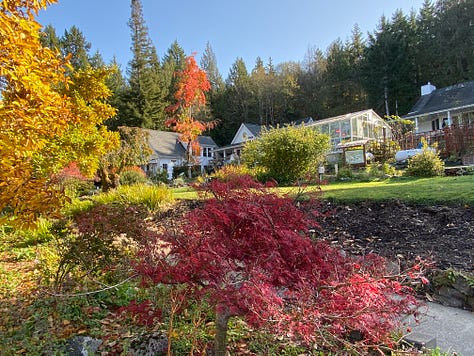
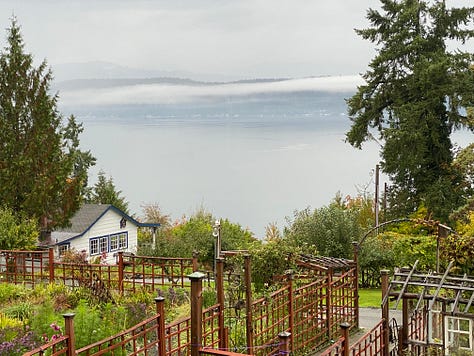
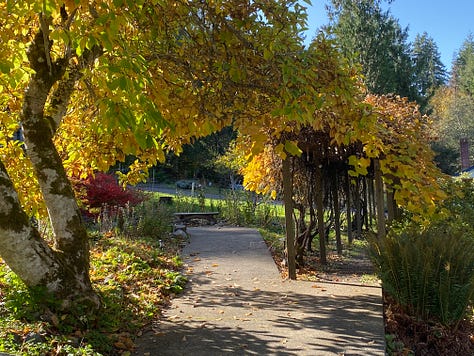
In the retreat, being a part of a community of people, all of whom were facing death, we opened up new territory for Don, for both of us, to be with, to accept, the possibility of death as a constant companion in our lives.
Everyone came in, frightened of death. A wise and compassionate leader guided the profound and beautiful conversation, which provided each of us with a boat to sail from the island of resistance to the island of acceptance.
Being at peace with death opened a new door, a door by the name of Possibility, through which Don could hear an inner voice of spirit calling to him: a voice of vitality, whose root word is “life,” and courage, whose root word is “heart.” Those two energies accompanied him and us on our long, heartful, and filled-with-learning path.
Don stood for Possibility.
The first invasive treatment of an 8-month course of chemotherapy, called CHOP, began.
Worry and Fear, two brothers, accompanied us on the path, and we accepted them as well, even opening our hearts to them or " inviting them in,” as Rumi instructs us to do in his poem “Each Human Being is a Guest House.” They “may be clearing you out for some new delight,” he says, echoing Brother David’s teaching that life comes to us as a gift.
This holding life that way opens the door to Non-Resistance, even peace.
CHOP did not work. The tumors came back.
We were devastated. In retrospect, we saw that we had been deeply attached to a certain outcome: that the treatment plan would work. We also realized that as long as we remained devastated, we could not move or think.
We both worked inwardly, letting go of our disappointment or, at the very least, being present with it, letting it be, accepting it, and seeing how we had expected it to go differently. Once we could accept the situation for what it was, we could start to respond creatively, inventing new possibilities for taking different paths.
First, we had to let go of our attachment.
Once he did, Don found an alternative treatment in San Diego to explore. While he ultimately chose not to engage in the treatment, the doctor there said something critical to him. Don asked him, “What would you do in my case?” The doctor paused, thought, and said, “You know, Don? We have found that those who do best are those who have given it up to God.”
Full stop.
Don embraced that. What had been said was so meaningful that Faith led the way through the journey.
You do not have to be religious to lean into this. You could possibly think of what this doctor was pointing to as “The Great Mystery,” “The Way,” “The Divine Voice Within,” “Timeless, Eternal Awareness,” or your own inner life-giving call for Wonder. And, if you are religious, it’s worth thinking new, as well, about that. It’s worth being curious about that, in wonderment about, “What does this mean, experientially?” you say to yourself. “Give it up to God.”
You will have your sense of this. For me, it’s letting go of willpower and control and needing life to look a specific way. It’s listening for the sacredness and the mystery in all things. It’s listening for the gift in what is appearing before me, whatever it is. It’s coming into Wonder and Awe. It’s cultivating a profound trust in the universe, a trust so profound that that trust opens the door to sustaining your stand despite the many so-called obstacles in the way, holding all the different expressions that life gives us as they are presented to us as gifts.
Here is how Brother David Steindl-Rast, our Benedictine Teacher puts it, in his beautiful book, A Listening Heart:
“But a calamity is also a word of God when it hits me. While working for me, a young man, as dear to me as my own little brother, has an accident. Glass is shattered in his eyes, and I find him lying blindfolded in a hospital bed. What is God saying now?
Together, we grope, grapple, listen, strain to hear. Is this, too, a life-giving word? When we can no longer make sense of a given situation, we have reached the crucial point. Now arises the challenge that calls for faith.”
Don had faith.
Don was a stand for Possibility.
The Sufi’s say, “Trust in God, but tie your camel first.”
Don tied every camel he had. Throughout his journey, he had an integrative oncologist with him. He also received acupuncture treatments once a week, psychotherapy to “get rid of any residual baggage,” massages once a month, and a change in diet.
After CHOP, Don went through two rounds of high-dose chemotherapy to see if he was eligible for a stem cell transplant. He was in the hospital for a month, moving through that procedure. The procedure involved recirculating his blood on behalf of harvesting his stem cells. It was a risky procedure, as Don had no immune system for a while. When the stem cells were returned to him, and the doctors had gotten what they needed for the transplant, Don said he could feel them dancing like angels in his veins. He was ebullient. He said, “The stem cells were so happy to be back with me! They were dancing in my arteries and veins.” He wanted to share this with somebody. He opened the door to his room, and there was his oncologist coming down the hall. Don told him what he was experiencing and how good it felt.
Two months later the tumors returned.
We both did the internal work of moving from severe disappointment—and, yes, we did have expectations, once again—to acceptance.
The oncologists were done—they had done everything they knew to do.
Don had received a gift several months earlier. While preparing for one treatment or another, a nurse had told Don about a brand-new treatment, Rituxan, that her husband had used. It seemed to be working, so Don tucked it away in his secret pocket of Trust.
Don stood for Possibility.
He enrolled his docs in starting him on a course of Rituxan.
It worked. It set his tumors back for a year. Then, he took a second course. It worked, too. It set his tumors back for nine months. Then, he took a third course. The tumors returned in six months. “The shine had gone off the Silver Bullet,” Don said.
And it was time to move on.
That was “the end of the line” for the docs. “Go home and pack your bags,” they said.
We went to Hawaii, creating a different environment in which to slow down and listen deeply. This allowed the greater wisdom from within to rise to the surface and guide us.
During our time in Hawaii, we sat with it, talked about it, and came to be present, without resistance, to the facts of what had been and what was now.
Don stood for Possibility. That is who he was and who he is.
During all this reflecting, thinking, and being, we had a realization. What was it?
We live in conversation. The conversations we live in affect us. They are not nothing. They are everything. And we were living in a conversation of “It’s all over, go home and die.”
“Words create worlds,” Rabbi Abraham Heschel tells us. It was time to move to another world.
It was time to shift the conversation, to end one conversation and begin another. The time had come to leave the traditional Western medical paradigm and find someone who was inhabiting another conversation, a different conversation, who was for the possibility of Life for Don.
We came home, committed to finding someone who was being that conversation. Within one week, a naturopath we knew gave us the name of another naturopathic physician with experience with people with cancer. When Don called him, he said he knew of a treatment program that had worked for others and might work for Don.
Don began the treatment: 50 grams of high-dose intravenous Vitamin C two times a week. After six weeks, the tumors were gone, and the blood tests were normal.
Eight weeks later, with all still appearing normal, Don said, “Okay. That good. I’m going to double down on this. I am going to do the whole thing again.”
And he did.
The tumors stayed gone.
Then, a month later, he did the whole treatment again.
And that was that.
Since 2004, we have never seen cancer again.
And now, Dear Reader, I invite you to allow gratefulness into your heart, to cultivate faith, to take your own stand for possibility in an area of your life that is problematic for you or, perhaps, even at a crisis stage for you…to step over the line from wish or want or hope in some area of your life, into commitment.
For, as W.H. Murray says,
“Until one is committed, there is hesitancy, the chance to draw back, always ineffectiveness. Concerning all acts of initiative (and creation), there is one elementary truth, the ignorance of which kills countless ideas and splendid ln’s: that the moment one definitely commits oneself, then Providence moves too. All sorts of things occur to help one that would never otherwise have occurred. A whole stream of events issues from the decision, raising in one’s favor all manner of unforeseen incidents and meetings and material assistance, which no man could have dreamt would have come his way.”
Providence moved for Don, and it can move for you as well. When you take a stand, you awaken the power of intent, and an energetic resonance is born, calling for Providence to move, too.
What stand are you taking in the face of whatever circumstances that are in your life that you wish to resolve, or break through?
If you are inspired by and/ or contributed to this post, I invite you to share it with others that you care about through email or social media.
Awakening Heart is a reader-supported publication. To receive new posts and support me and my work through writing, consider becoming a free or paid subscriber. If you become a paid subscriber for $60 annually or $6 monthly, I am delighted to send you the e-book of my first published book, Crossing Thresholds, Island Reflections, a book filled with poetry, photographs of nature, and developmental inquiries, inspiring new pathways for creating endings and starting new beginnings in your own life. Centered around the themes of impermanence, discovery, wonder, and forgiveness, Crossing Thresholds: Island Reflectins is a Gold Global award winner for nature poetry.

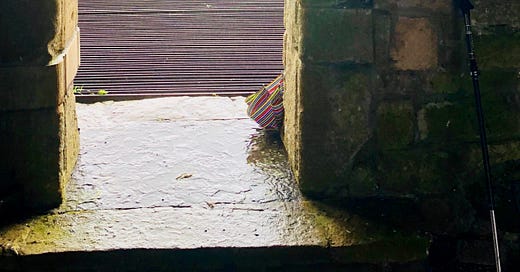



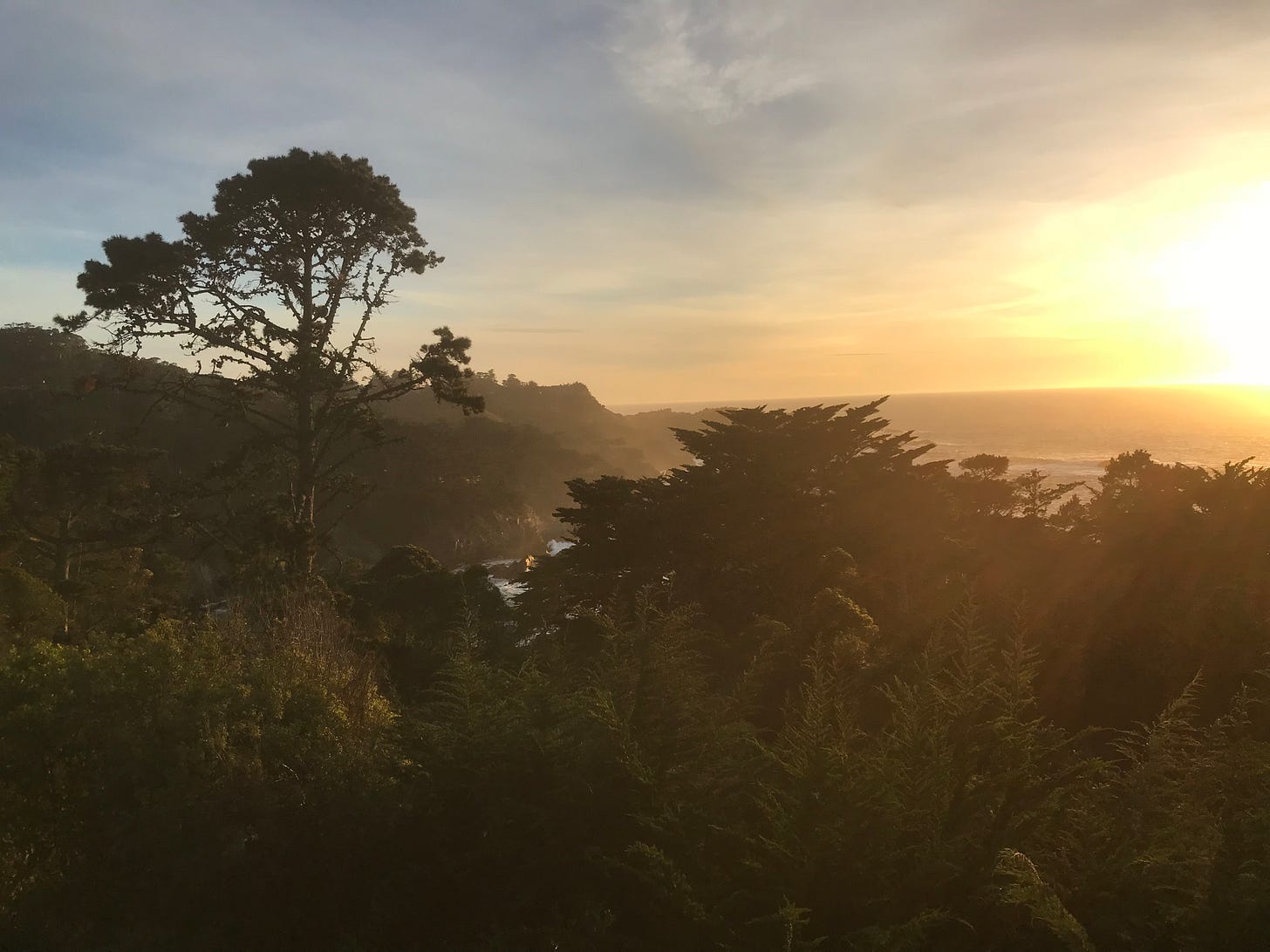
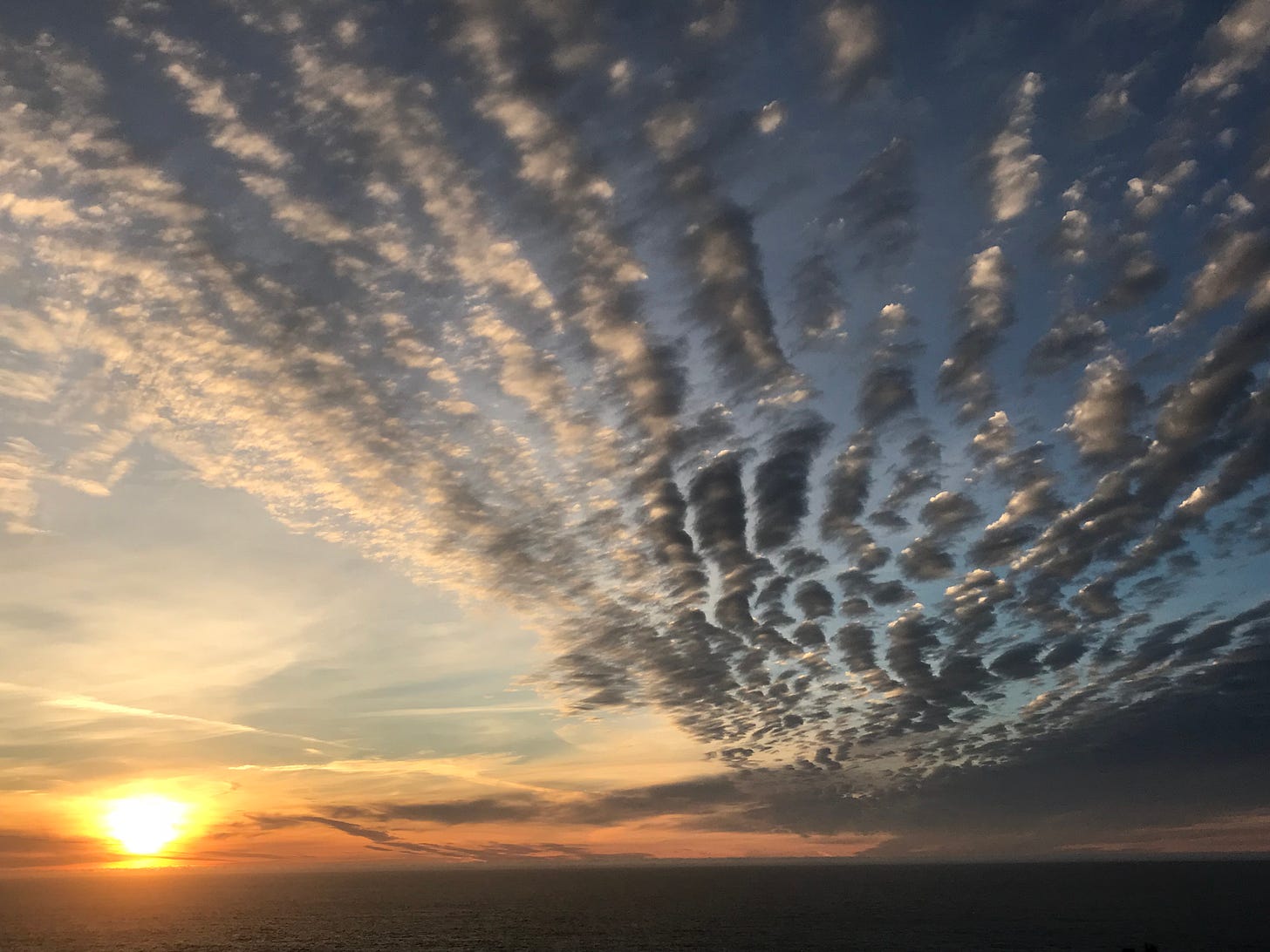
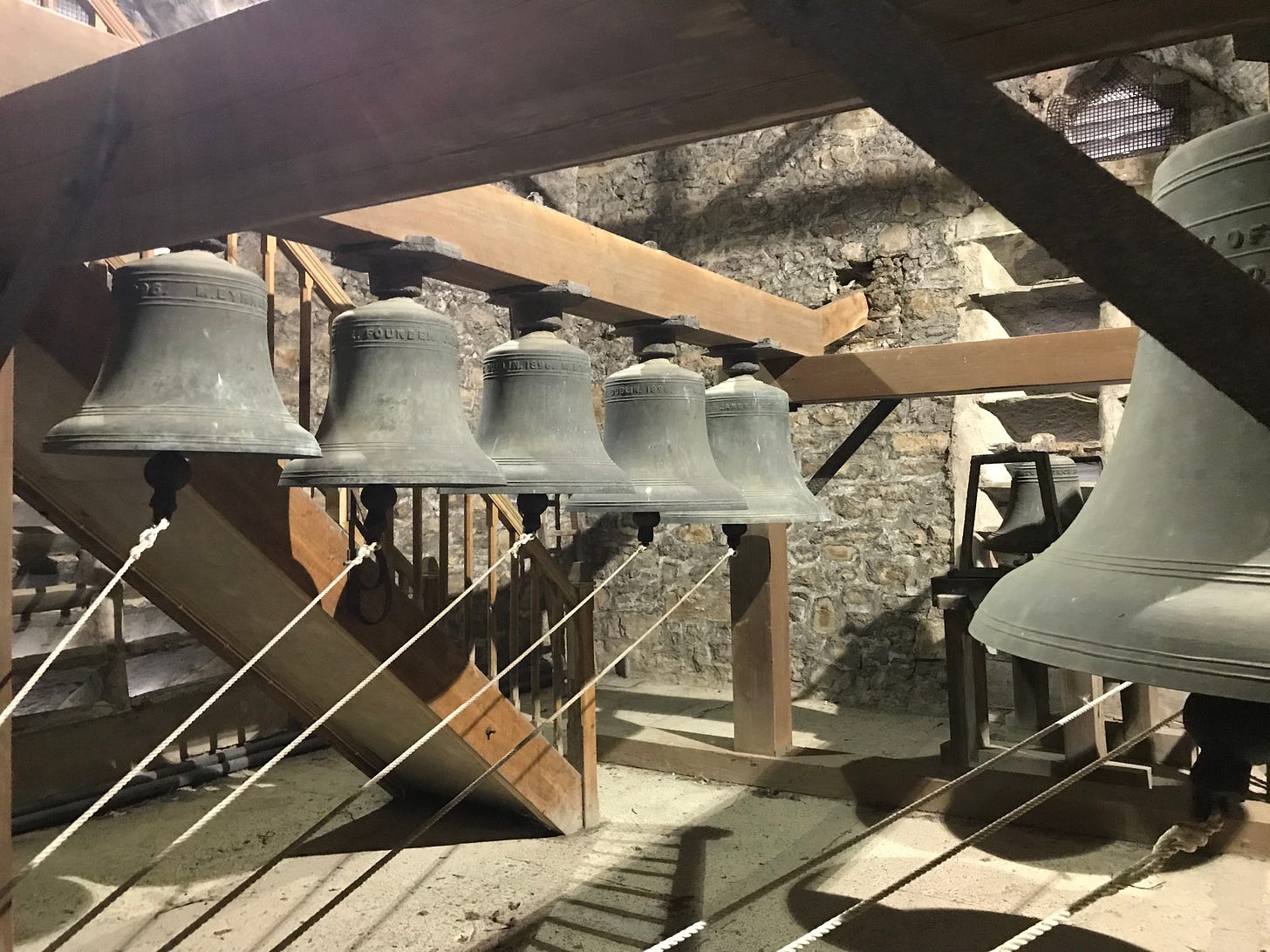
Amba, as Rich said, I didn’t know the full story, or the powerful intentionality you and Don grew into and summoned for this journey.
When paired with you last essay, they serve as a source document for leading and living one’s life.
And your conversational writing in this essay was a beautiful way for you as the writer, and you and Don as subjects, to engage the reader. Bravo.
For as long as I have worked with and loved you and Don, I never knew the whole story of Don's cancer journey. Thank you, what a gift. Indeed, you both stand and live for Possibility.